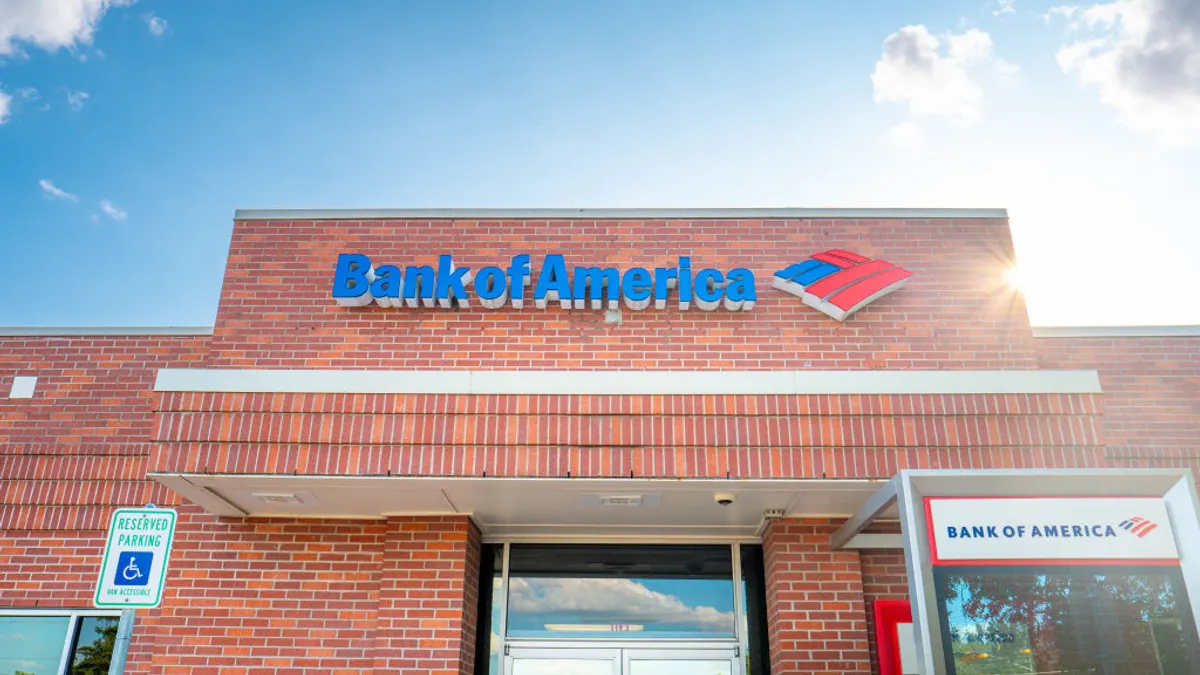UPDATE: March 3, 2020: The Federal Reserve cut interest rates by half-a-percentage point on Tuesday in response to the COVID-19 outbreak. The rate cut is the Fed's first emergency rate cut since December 2008, during the financial crisis.
Dive Brief:
-
Regulators including the Federal Reserve are expected to discuss the implications of the COVID-19 outbreak, a potential pandemic on the economy and financial markets, during a meeting Wednesday of the Financial Stability Oversight Council's systemic threat panel. The planned meeting comes as U.S. stocks suffered their worst week since the 2007-08 financial crisis last week amid growing coronavirus fears.
-
Federal Reserve Chairman Jerome Powell released a statement Friday, saying the regulator "is closely monitoring developments" of the coronavirus and "will use our tools and act as appropriate to support the economy."
-
The statement comes as the U.S.'s top financial regulators are expected to meet to discuss the infectious disease's potential impact on the country’s financial services industry, sources told Reuters on Friday.
Dive Insight:
As regulators convene to discuss COVID-19's economic impact, as well as signal potential rate cuts, U.S. banks are implementing their own precautions.
Goldman Sachs has halted all non-essential international business travel, according to an internal memo seen by Reuters. The investment bank restricted travel to and within Italy, and staff who have traveled to mainland China, South Korea, Iran and Italy, or have been in close contact with those who have, are required to self-isolate.
JPMorgan Chase also restricted all but essential international work travel, while Citigroup and Bank of America have restricted travel to Asia and Italy in response to the coronavirus.
Investment bank Morgan Stanley is preparing a backup stock-trading floor in suburban Westchester County, according to The Wall Street Journal. The bank said its upcoming 10th annual Hong Kong Investor Summit will be virtual instead of taking place at its offices.
Top banks have also been asked to detail how they plan to respond to the virus's spread.
Sen. Elizabeth Warren, D-MA, sent letters to the CEOs of some of the country’s largest banks, asking for their plans.
“I write to inquire how your bank is monitoring and managing the economic threat and potential risk to your bank related to the spread of coronavirus in China and around the world,” the Democratic presidential contender wrote in letters sent to the heads of Bank of America, Citigroup, Goldman Sachs, JPMorgan Chase and Morgan Stanley. “As a globally systemic important bank, your institution and the customers it serves could be impacted either directly through exposures to areas where the virus has spread or indirectly through a change in market conditions caused by disruptions in supply chains, a drop in tourism or travel, or numerous other factors that could cause a slowdown in economic growth.”
Warren, who is a member of the Senate Banking Committee, asked each CEO to provide information regarding how they are evaluating their institution's risk and exposure to the virus, as well as how they are monitoring its development.














